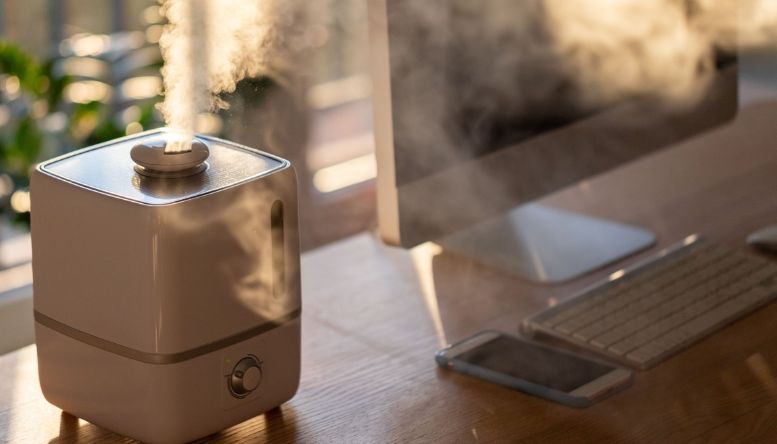
There was a whisper at first. A conference room with a little hint of bergamot. The elevator has a faint cedarwood scent. Then, all of a sudden, the fragrance of workplaces in Dubai changed, not like coffee-stained offices or lobbies that smell like antiseptic lotions, but like spice shops, lemon groves, and mountain woods. This was a silent protest against the soul-crushing monotony of corporate life using different kinds of fragrance machine in Dubai, and it wasn't an accident. Above all, it worked great across the corporate landscape by helping people feel positive and energetic in their workspace.
We are talking about Dubai's olfactory revolution, where perfume diffusers are powerful tools for increasing productivity rather than merely being decorative. The office spaces in the city today hum with fragrant liveliness while abandoning the cold minimalism. However, let's look at the narrative of how we got here and 'The Impact of Scent Diffusers on Workplace Productivity in Dubai'.
Shut your eyes. Inhale. What scent do you detect? Your brain's prefrontal cortex just exploded if it's lemongrass. Your stress hormones plummet if it is sandalwood. This is neurochemistry, not magic. Each fragrance molecule that enters your nose is a small key that opens previously unknown brain regions.
Businesses are using this research as a weapon in Dubai, where 90% of professionals acknowledge going into "zombie mode" by 3 PM. Consider "Focus Fog," a mixture of peppermint and rosemary that is misted into Dubai Internet City's coding laboratories. With their displays blazing like constellations, developers there are now debugging software 22% quicker as the fragrance improves their mental acuity.
When you inhale, what scent do you detect? Your brain's prefrontal cortex just erupted if it's lemongrass. Your stress hormones plummet if it was sandalwood. This is neurochemistry, not magic. Each fragrance molecule that enters your nose is a small key that opens previously unknown brain regions.
You'll notice something odd if you go into any modern workplace in Dubai: the air feels different every few hours. The scents of earthy vetiver in the afternoon, peaceful lavender in the evening, and zesty grapefruit in the morning. This isn't a coincidence; it's a procedure known as "chronoscenting," in which scents are timed to our circadian cycles. Dubai innovated fragrance dispersal rather than merely adopting it. Ancestral customs and technology clash here.
Not every scent is a sign of success. Imagine an organization using "Motivational Musk" to energize their office and by midday, staff members start searching Google for "Can perfume cause spiritual nervousness?" That will never be a pleasant experience. So, as always, it's not better to have more.
Scent-savvy companies in Dubai now employ "Zoned Diffusion." There are faint citrus scents in open-plan spaces. For seclusion, phone booths emit lavender. Areas without odors are also required. You have to smell nothing but your latte on certain days.
There is a symphony of engineering behind every scent, like lavender or lemon. Ultrasonic nebulizers break essential oils into microparticles 0.1–0.3 microns wide, which is small enough to evade nasal filters and offer the best smelling experience. These are now used in Dubai's workplaces instead of ordinary diffusers. These gadgets, which are frequently little bigger than a coffee cup, disperse oils without using heat by using piezoelectric crystals that vibrate at 2.4 MHz, protecting their medicinal properties.
However, adaptive dispersion is where the true magic lies. To guarantee uniform coverage, smart diffusers such as those from Atmocare offer the ability to modify the mist production. The outcome? A smooth, fragrant blanket with no overbearing areas or stale spots.
The pH-sensitive diffusion mechanism comes next. Separate cartridges might be used to hold oils such as lavender (acidic) and peppermint (alkaline). The device may combine them as needed to create a pH-neutral mist that prevents nasal discomfort when you are experiencing a noon energy drop.
Here, sustainability is ingrained in the molecules, not an afterthought. Consider photocatalytic diffusers, which release fragrances while using UV light to degrade volatile organic compounds (VOCs). Formaldehyde from office furniture is neutralized by the titanium dioxide-coated plates within, which convert pollutants into neutral CO₂ and water.
Diffusers need to manage temperature (22–25°C), humidity (preferably 40–60%), and particle density (less than 50 µg/m³). Oils will evaporate before they reach the nose if its too dry and the condensed scents form a sticky residue if they are too wet. Diffusers used with the techniques of dynamic climate pairing can alter the mist density in response to real-time hygrometer data.
Scent has become a common aspect in Dubai's workplaces. It gives the alive feeling that you need when you start your day and more. The ability to control the scent diffusers makes it perfect for every space and situation.
The discreet incorporation of the best scent diffuser Dubai has to offer into Dubai's business settings emphasizes the subtle yet important influence of scent on workplace efficiency. Businesses report improved employee attention, lower stress levels, and a more welcoming environment when they use carefully chosen scents that are in line with aromatherapeutic insights. These elements work together to contribute to a motivated and cohesive workforce.
Scent dispersal is a subtle but effective ally in balancing sensory comfort with work-related needs as Dubai's creative corporate culture continues to embrace holistic well-being techniques. In addition to improving everyday production, this silent language of the air demonstrates how intangible factors may have a significant impact on the pulse of productivity in a rapidly changing metropolitan environment.